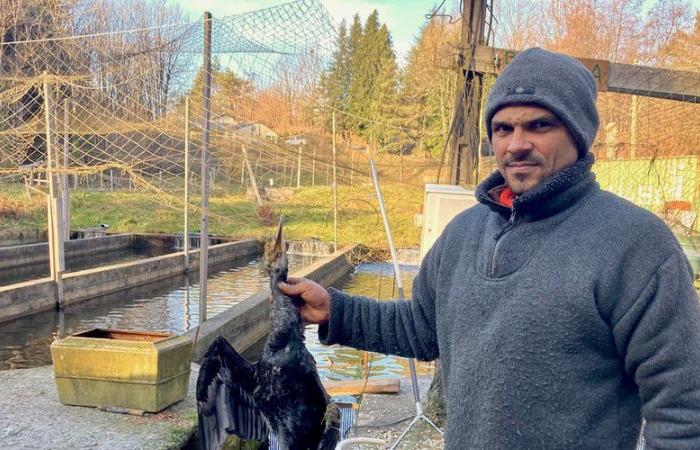
the essential
A seabird that leaves its traditional environment to settle in the Tarn? This situation, which until recently was quite marginal, is taking a worrying turn. Fishing professionals are sounding the alarm.
The Tarn is invaded by cormorants. You can reread this sentence, because it seems incredible, and yet! This migratory bird, accustomed to the marine environment, causes very difficult times for fishermen and professionals in the fish farming sector, in France and particularly in the Tarn.
Alain Cousinié, the president of the Tarn Fishing Federation, explains: “there is not an assembly of fishermen where the question is not raised! The great cormorant was until recently confined to the marine environment. But the industrial fishing, among other things, caused damage, and the cormorant began to move up the estuaries. They adapted, and a subspecies was born, the one now found in the Tarn. The animal is a predator, and therefore, a “competitor of the fisherman and fish farmer”.
“For them, it’s an all-you-can-eat buffet”
Above all, the cormorant has nothing to do in the Tarn: it has no predator, and its fishing abilities – it can dive deeply and hold its breath underwater for a long time – make it a machine for catching fish. local. Thus, in Jaladieu, above Brassac, Jonathan Mehal's fish farm has been transformed into a playground for these birds. “They live around the lakes, in Laouzas or Raviège. And for them, fish farms are an all-you-can-eat buffet, laments the professional. A cormorant lives a long time, it produces 4 babies per year… And we has no right to hunt them, so they proliferate!”
-Since October, Jonathan Mehal has suffered attacks from these seabirds which settle in the Tarn. “I have seen up to 26 at the same time, above me. At daybreak, they arrive, and it's a raid. They have taken up to 150 kg of fish per week, That represents 1500 euros in losses each time!”
“It has become a scourge”
Alain Cousinié is well aware of the problem, which cannot be resolved only at the local level. “Two extremes clash on this subject: the defenders of birds, who do not want a single feather of cormorants to be touched, and those who want to see them completely disappear. The Federation does not support any of these positions. We want a regulation.” A few years ago, regulatory orders were issued. All canceled following the appeal of bird defense associations. “But since July 2024, the prefectures have again had the possibility of issuing these regulatory orders. But we are still waiting.”
In the Tarn, the impact is economic: fish farmers suffer losses, and must also spend to protect their ponds. The problem also concerns recreational fishing, affected by the drop in the number of fish. “I’m jaded,” says Jonathan Mehal. “It’s become a scourge.” On the Federation side, we are announcing the launch of a count of cormorants in Tarn, in 2026. We also hope that the administrative situation will evolve. “What is certain,” concludes Alain Cousinié, “is that today there are thousands of them in our department…”


